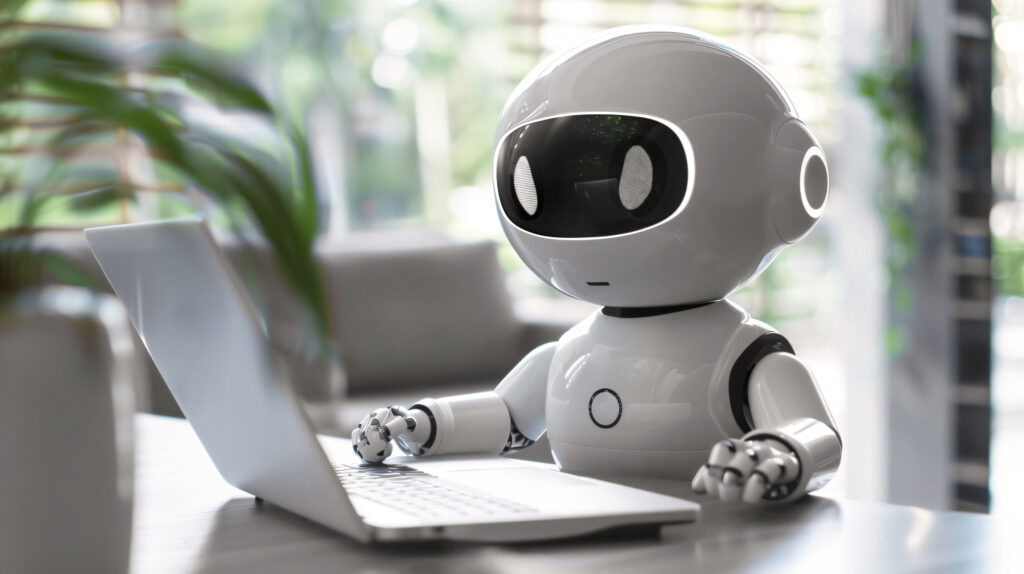Remember when we thought chatbots were revolutionary? That was child’s play compared to what’s happening now.
We’ve entered the era of agentic AI – where artificial intelligence doesn’t just suggest or create, but actively decides and purchases on behalf of humans. Your customer’s digital PA is about to become your most important audience.
And it changes everything about how we market.
Bot-to-Bot Marketing Is Here
“Every single marketer is going to be marketing to bots,” warned advisor Shelly Palmer at CES 2025. “We are going to be marketing to the personas that are on those phones.” This isn’t science fiction – it’s happening now. As Mastercard’s chief marketing officer Raja Rajamannar puts it: “It’s an era of bot-to-bot marketing. Your machines are now marketing to consumers’ machines.”
💡: When consumers delegate purchasing decisions to AI agents, traditional persuasion tactics become irrelevant. The machine doesn’t care about your emotional appeal – it wants structured data and objectively measurable value.
The Death of the Marketing Funnel
Think about how AI agents make decisions:
– They know user preferences, budget constraints, and brand values
– They can evaluate options in milliseconds, not minutes
– They prioritize objective attributes over subjective messaging
– They’re immune to FOMO, social validation, and impulse purchases
The awareness-consideration-conversion funnel that has defined marketing for decades is collapsing. When machines can go from query to decision in seconds, your brand must be positioned before the question is even asked.
As Piper Dolan from Team Lewis noted: “If your brand isn’t already in position when AI makes its decision, you’re probably out of the race.”
SEO Is Dead (Kind Of)
Traditional search engine optimization relied on getting users to click through to your content. But in an agentic world, that paradigm is obsolete. “It is the end of link-based search,” Palmer warned. “They click on nothing. They summarize. If you’ve got the answer you want, why are you going to click?” This means your content strategy must shift from “driving traffic” to “enabling extraction” – making your brand information machine-readable, structured, and instantly accessible.
Your AI-Powered Marketing Team
The Three-Step Playbook
Optimize for Machines, Not Just Humans
– Implement structured data markup (Schema.org) across all digital properties
– Create machine-readable brand guidelines and product attributes
– Ensure price, availability, and specifications are consistently formatted
Double Down on Real Experiences
– As digital becomes machine-to-machine, physical experiences become more valuable
– Mastercard’s multi-sensory approach with sound and scents demonstrates value of the emotional connection
– The brands that win will excel at both digital efficiency and human connection
Automate Everything Repetitive
– If you’re still relying on manual workflows, you’re not keeping up
– From content creation to campaign optimization, automation + AI = competitive advantage
– The human touch should be reserved for strategy, creativity, and relationship-building
The Philosophical Shift
This transition requires more than tactical changes – it demands a philosophical reset about what marketing actually is.
For decades, we’ve defined marketing as the art of influencing human decisions through messaging and positioning. But in an agentic world, marketing becomes the science of making your brand the objectively optimal choice for the parameters that matter.
The marketers who adapt fastest will gain disproportionate advantages as AI agents increasingly mediate consumer choices. Those who cling to purely human-centric approaches risk becoming invisible to the new gatekeepers of commerce.
This isn’t a future scenario to prepare for – it’s already here. The only question is whether your brand is ready to be chosen by algorithms as readily as it once was by humans.
Article from Smart Stack.
Marketing to Machines: Why Your Next Customer Isn’t Human

ID 324410540 | Ai Robot © Axel Bueckert | Dreamstime.com